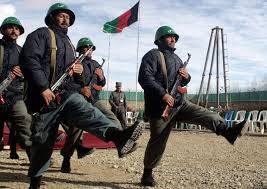Afghanistan, the landlocked Hindu Kush state, has been used as a proxy playground by its immediate nighbours as well as international power players for a long time. Commonly known as ‘The Great Game’, the 19th century witnessed a strategic rivalry and confrontation between Victorian Britain and Czarist Russia for establishing supremacy in Central Asia. After the Saur Revolution in Afghanistan, the Soviet Army entered Afghanistan to promote its own brand of communism there in 1979. To counter this communist onslaught on Afghanistan, the US intervened under the so-called Reagan Doctrine. Consequently, this region has been a ‘hot spot’ of the Cold War for almost a decade. During this war, the Afghans were equally exploited by both the Communist and the Free World. After the withdrawal of Soviet troops in 1988, Afghanistan was pushed again towards the worst kind of civil war, with all its six neighbouring countries, along with the US and Russia, aggressively trying to extend their influence within it by supporting the Afghan warlords of their choice.
Pakistan actively participated in the whole Afghan Jihad as a frontline state. However, like Afghanistan’s other neighbours, it has also failed in positively contributing much towards the peace and stability of Afghanistan after the Soviet withdrawal. Abandoning its apparent resolve of supporting the establishment of broad-based, multi-ethnic representative government in Afghanistan, Pakistan decided to pursue its strategic interest by trying to install a tailor-made regime in Kabul.
After successfully hosting and concluding the Peshawar Accord in 1992, Pakistan didn’t significantly help President Burhanuddin Rabbani to consolidate his government in Afghanistan. In its overriding obsession with installing a Pushtun-dominated regime in Kabul, Pakistan firstly supported the most controversial Mujahideen commander of Hizbi Islami, Gulbuddin Hekmatyar, and then the fundamentalist Taliban. Instead of stabilizing Afghanistan, these policies resulted in radicalizing Afghan society. Towards the end of the last century, Pakistan also devised the so-called ‘Strategic Depth’ hypotheses to counter any possible Indian aggression. In this context, Pakistan is often accused of trying to treat Afghanistan as its fifth province.
After the 9/11 attacks, US decided to intervened in Afghanistan in the name of the War on Terror. Under Operation Enduring Freedom, it dismantled the whole of Afghanistan. Having consolidated its position in Afghanistan, it also started pursuing its many strategic goals in the region. It is generally believed that the prolonged stay in Afghanistan is merely a part of its so-called Greater Middle East initiatives. Ignoring altogether the dynamics of internal politics, political culture and ethnic composition of the country, it has chosen to install a pro-US regime in Kabul. Even after the scheduled US withdrawal, under the Bilateral Security Agreement (BSA), the United States will continue to protect its national and strategic interests in the region.
Following the US-led invasion of Afghanistan, India has also successfully secured an important ‘strategic’ position in Afghanistan. Although India was the only South Asian country which recognized and supported the Soviet-backed regime in Kabul in the 1980’s, it is an important US ally in Afghanistan at present. India offered intelligence and other support to the coalition forces, and aided the overthrow of the Taliban Government in 2001. It has also been the largest regional provider of humanitarian and reconstruction aid to Afghanistan. It has actively collaborated with the US for training and equipping the Afghan National Army and Afghan intelligence agency, the National Directorate of Afghanistan.
Indian Army’s Border Road Organization has also built a road in the Nimroz province to connect Afghanistan with Iran, providing a viable alternative route for Afghan goods through the Chabahar port in Iran. Reducing Afghan economy’s dependence on Pakistan by building alternative routes has been India’s key strategy in Afghanistan. India has also signed a Strategic Partnership Agreement with Afghanistan in 2011. India and Afghanistan don’t share a common border. Likewise, currently, there is no significant bilateral trade between the two countries. What is the India-Afghanistan strategic partnership all about? What are India’s strategic interests in Afghanistan beyond harming its arch foe, Pakistan? As a matter of fact, India has planned a sort of ‘Strategic Encirclement’ against Pakistan on the very soil which had once been used by the latter as its ‘Strategic Depth’. Pakistan has often accused India of sponsoring certain Violent Non Sate Actors (VNSA) to destabilize it through disruptive and terrorist activities.
Now, it is being feared that the proxy civil war will revisit Afghanistan following the withdrawal of US troops this year. Recently, Pakistan’s former military ruler General Pervez Musharraf has expressed his similar concerns about the future of Afghanistan. He condemned India for wanting an anti-Pakistan Afghanistan, and criticized former Afghan president Hamid Karzai for sending officials for training in India and not Pakistan. At a meeting of South Asian Leaders in Nepal last month, Afghan President Ashraf Ghani has said that he would not let his country become the battleground for a proxy war between India and Pakistan. In fact, his words can only be wishful thinking as the realities on ground in Afghanistan are different. Actions must now speak louder than words.
The writer is a lawyer. He can be contacted at mohsinraza.malik@ymail.com. Follow him on Twitter






